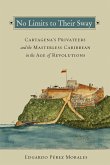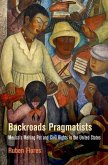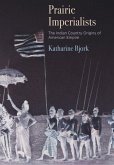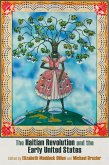Following the 1808 French invasion of the Iberian Peninsula, an unprecedented political crisis threw the Spanish Monarchy into turmoil. On the Caribbean coast of modern-day Colombia, the important port town of Cartagena rejected Spanish authority, finally declaring independence in 1811. With new leadership that included free people of color, Cartagena welcomed merchants, revolutionaries, and adventurers from Venezuela, the Antilles, the United States, and Europe. Most importantly, independent Cartagena opened its doors to privateers of color from the French Caribbean. Hired mercenaries of the sea, privateers defended Cartagena's claim to sovereignty, attacking Spanish ships and seizing Spanish property, especially near Cuba, and establishing vibrant maritime connections with Haiti.
Most of Cartagena's privateers were people of color and descendants of slaves who benefited from the relative freedom and flexibility of life at sea, but also faced kidnapping, enslavement, and brutality. Many came from Haiti and Guadeloupe; some had been directly involved in the Haitian Revolution. While their manpower proved crucial in the early Anti-Spanish struggles, Afro-Caribbean privateers were also perceived as a threat, suspected of holding questionable loyalties, disorderly tendencies, and too strong a commitment to political and social privileges for people of color. Based on handwritten and printed sources in Spanish, English, and French, this book tells the story of Cartagena's multinational and multicultural seafarers, revealing the Trans-Atlantic and maritime dimensions of South American independence.
Most of Cartagena's privateers were people of color and descendants of slaves who benefited from the relative freedom and flexibility of life at sea, but also faced kidnapping, enslavement, and brutality. Many came from Haiti and Guadeloupe; some had been directly involved in the Haitian Revolution. While their manpower proved crucial in the early Anti-Spanish struggles, Afro-Caribbean privateers were also perceived as a threat, suspected of holding questionable loyalties, disorderly tendencies, and too strong a commitment to political and social privileges for people of color. Based on handwritten and printed sources in Spanish, English, and French, this book tells the story of Cartagena's multinational and multicultural seafarers, revealing the Trans-Atlantic and maritime dimensions of South American independence.
Dieser Download kann aus rechtlichen Gründen nur mit Rechnungsadresse in A, D ausgeliefert werden.









